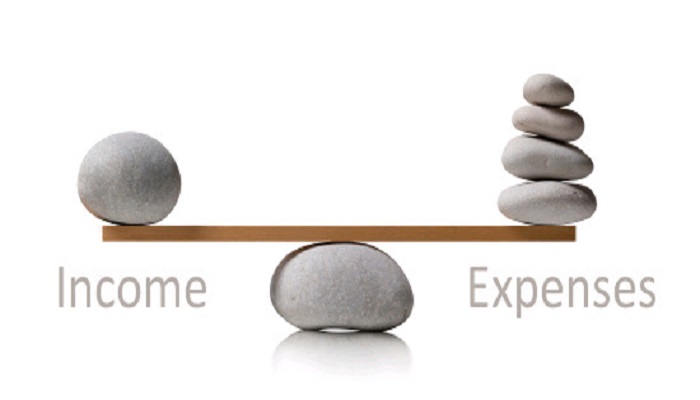Today makes it three days since payday and if you are like most people, you know the same pattern concerning your finances is going to repeat itself again this month. In just a couple of weeks (or even days perhaps), you will have less in the bank than you need to get you to the end of the month. The general price increases we have witnessed over the last 6 – 12 months, have made the salary that used to just get you by in the past, totally inadequate.
Food is way more expensive now. Everything is way more expensive now! Your children’s school fees seem to go up every September; you barely have enough to entertain yourself like you used to and God help you if you have an emergency situation that requires cash to solve it because you don’t know who else you are going to get the money from.
If this describes your condition, well, I won’t say don’t fret, but I would say, you are not alone. “Inflation adjusted salary increase” is not in the vocabulary of most HR managers and many people are getting by on their savings or other sources of income.
What your condition requires is quick evaluation and action because you can’t go on like this for much longer; you will derail your long term financial goals otherwise. In this post, I share a plan that will hopefully get you out of your rot and back on the road to financial freedom. You may already be familiar with some of what I will share but sometimes we all need a refresher.
You need to write down and track all your income lines and your expense lines for the month. If you are not doing this monthly, then frankly, you haven’t even begun to solve your money problems.
[Read Also: How to make $1bn from a single product in Nigeria]
Evaluate Your Situation.
When your spending constantly outstrips your income, you really have just two options: increase your income or reduce your spending. That answers the “how to?” question but the more important question to ask is the “why?”. Why are you always in this situation? Let’s keep the more obvious answers till later and tackle the root cause. Your “why” could be because of a new addition to your family or that you’re taking a distance learning course that requires you to travel more frequently. Sometimes, it’s a recent change and can be identified easily, other times, it requires some probing.
A gentleman who inspired me to write this post came to me for help recently with his financial issues and the first thing I did was to find out the why behind his issues. With a little probing, it turned out that the underlying reason for his condition was debt. Over the years, he had acquired a car, electronics and what have you, all on monthly payment plans. The total monthly repayments were within 30% of his monthly net pay and didn’t hamper his cash flow a year ago but the recent price hikes have gradually stripped away his very narrow buffer. So the answer to your problem may be to either increase your income or reduce your spending but you need to first know the “why” so you can make the best long term moves.
Know The Difference Between Need and Want.
Do you really need to carry around that internet Wi-Fi device that costs you N20,000 a month? Your excuse may be that you need to be online 24/7 but when it comes down to it, you spend most of the data watching TV series and movies. A 1GB data plan on your phone can provide you enough data to access your emails and social media accounts for the whole month. If you really need to watch movies, then you can watch with friends and save yourself some money.
[Read Also: INSIGHT: Here’s a reliable way to save money from your monthly salary]
You need to access everything you spend money one and consider whether you need it or want it. Paying for something may bring convenience but if you could live without it before, you can again.
Write It All Down.
This is s-o-o-o important. You need to write down on a sheet of paper or on a spreadsheet or better still in a budgeting software, all your income lines and your expense lines for the month. If you are not doing this monthly, then frankly, you haven’t even begun to solve your problems.
When you create a monthly budget before the month starts, you need to ensure that the expenses are lower than your income and then you save the difference.
Budgeting is step one. Step two, is to keep track of all your expenses. If you budget N80,000 for diesel every month, keep your receipts and track your actual spend versus the budget. This is the only way you will know whether N80,000 is a realistic amount or if there is room to tighten things to N50,000 the following month.
Writing everything down also shows you the extent of the income gap. If still have an income shortfall after you have cut out all the non-essentials and you are living like a cave man, well, at least you would have quantified the extent of your problem. You would know exactly how much extra you need in income every month to get by.
[READ THIS: 9 easy steps to negotiate out of a bad loan]
Engage Frugal Mode.
This means pinch every penny and spend like it’s your last kobo. It means that you will seek out the absolute best deal you can get and still bargain for a discount wherever possible. This also means switching from your favourite breakfast cereal to a Nigerian brand or switching to boiled yam and fried egg outright. I use cereal as an analogy but I trust you get the point.
You will need to do this with your spouse though, over a long period for it to have real value. The generator won’t go off at 10 p.m. anymore but at 9 p.m. No more snacks and pastries but packed breakfast and lunch for everybody.
You will also need to get creative. A lady told me once, how she used to pass on her share of a bag of beans at the office during Christmas. Last Christmas, she insisted on her share and introduced beans into her family’s diet in a variety of ways that didn’t make them complain; akara, moin moin, porridge beans, gbegiri, ewa agoyin etc.
Enough Talk, Act Now!
Try to remember that you are in a temporary situation and you can plan your way out of your circumstances. In summary, you will need the following:
- Short term plan: Reduce spending and cut out all non-essentials.
- Medium term: Look for side hustles that fetch you some money to shore up the income gaps.
- Long term: find a way to grow your overall monthly income. This might mean getting a new qualification or switching jobs or even careers.
Follow Tunde via his blog on Talking Money
[YOU SHOULD READ THIS: Does one’s fat salary automatically guarantee wealth?]






















Hi Bigz, I will advise you to have allocated funds for such, when exhausted don’t go beyond.